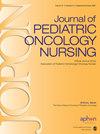假装游戏对癌症儿童的干预:可行性研究
IF 1.9
3区 医学
Q2 NURSING
引用次数: 9
摘要
癌症儿童的症状和繁重的治疗往往会给儿童及其家人带来痛苦。死亡率是癌症诊断的一个方面,而另一个方面是治疗期间和之后的生活质量和幸福感。通过支持儿童在护理环境中的沟通、自我效能和应对能力,儿童有可能获得更多的独立性和参与性,并被允许对他们的护理产生影响。本研究的目的是开发和评估癌症儿童的成人辅助假装游戏干预的可行性和可接受性。五名正在接受癌症治疗的儿童被邀请参加一项游戏干预,其中包括六到八次结构化的假装游戏,旨在提高参与度、独立性和幸福感。采用混合方法设计来评估游戏干预的可行性和可接受性。在干预之前和之后,以及在每次游戏环节中收集测量值。结果表明,孩子们喜欢游戏干预。研究结果表明,在护理情况下,参与者的自我效能感略有改善,生活质量平等或提高。一项主要发现是,在游戏过程中没有报告不良事件或增加担忧。因此,根据参与者及其主要照顾者的报告,干预被认为是安全、可行和可接受的,也是增加癌症诊断儿童参与和独立性的可能手段。本文章由计算机程序翻译,如有差异,请以英文原文为准。
Pretend Play as an Intervention for Children With Cancer: A Feasibility Study
Children with cancer suffer from symptoms and burdensome treatments that often cause distress to children and their families. Mortality is one aspect of cancer diagnosis, while another is the quality of life and well-being during and after the treatment. By supporting children’s communication, self-efficacy and coping ability in the care situation, children are given the possibilities for increased independence and participation and are allowed to develop an influence over their care. The aim of this study was to develop and evaluate the feasibility and acceptability of an adult-facilitated pretend play intervention for children with cancer. Five children with ongoing treatment for cancer were invited to a play intervention that consisted of six to eight sessions of structured pretend play aimed at increasing participation, independence, and well-being. A mixed method design was used to evaluate the feasibility and acceptability of the play intervention. Measures were collected before and after interventions, and in conjunction with every play session. Results suggest that the children enjoyed the play intervention. Findings indicate small improvements regarding self-efficacy in care situations and equal or increased quality of life for participants. A main finding was that no adverse events or increased worrying was reported in conjunction with play sessions. Therefore, the intervention is regarded as safe, feasible, and acceptable as reported by participants and their primary caregivers and a possible means of increasing participation and independence in children with a cancer diagnosis.
求助全文
通过发布文献求助,成功后即可免费获取论文全文。
去求助
来源期刊
CiteScore
3.10
自引率
0.00%
发文量
0
审稿时长
>12 weeks
期刊介绍:
SPECIAL PATIENTS NEED SPECIAL NURSES
Caring for children with cancer is one of the most technically and emotionally difficult areas in nursing. Not only are you dealing with children and adolescents who hurt, you must reassure and educate families, balance a multitude of other health care professionals, and keep up with ever-changing nursing practice and care. To help special nurses stay aware of the newest effective nursing practices, innovative therapeutic approaches, significant information trends, and most practical research in hematology and pediatric oncology nursing, you need the Journal of Pediatric Oncology Nursing.
The journal offers pediatric hematology, oncology, and immunology nurses in clinical practice and research, pediatric social workers, epidemiologists, clinical psychologists, child life specialists and nursing educators the latest peer-reviewed original research and definitive reviews on the whole spectrum of nursing care of childhood cancers, including leukemias, solid tumors and lymphomas, and hematologic disorders. JOPON covers the entire disease process--diagnosis, treatment, recovery, and survival, as well as end-of-life care.
Six times a year, the Journal of Pediatric Oncology Nursing introduces new and useful nursing care practice and research from around the world that saves you time and effort. Just some of the spirited topics covered include:
Cancer survivorship including later-life effects of childhood cancer, including fertility, cardiac insufficiency, and pulmonary fibrosis
Combination therapies
Hematologic and immunologic topics
Holistic, family-centered supportive care
Improvement of quality of life for children and adolescents with cancer
Management of side effects from surgery, chemotherapy, and radiation
Management of specific symptoms/diseases/co-infections
Medication tolerance differences in children and adolescents
Pain control
Palliative and end of life care issues
Pharmacologic agents for pediatrics/clinical trial results
Psychological support for the patient, siblings, and families
The dynamic articles cover a wide range of specific nursing concerns, including:
Advanced practice issues
Clinical issues
Clinical proficiency
Conducting qualitative and quantitative research
Developing a core curriculum for pediatric hematology/oncology nursing
Encouraging active patient participation
Ethical issues
Evaluating outcomes
Professional development
Stress management and handling your own emotions
Other important features include Guest Editorials from experts in the discipline, Point/Counterpoint debates, Roadmaps (personal insights into the nursing experience), and Proceedings and Abstracts from the annual Association for Pediatric Hematology/Oncology Nurses (APHON) conference.
Your special patients need special nurses--stay special by subscribing to the Journal of Pediatric Oncology Nursing today!
This journal is a member of the Committee on Publication Ethics (COPE).

 求助内容:
求助内容: 应助结果提醒方式:
应助结果提醒方式:


